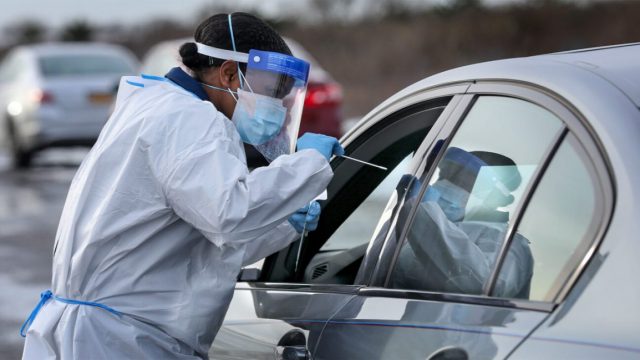express– WHO Chief Scientist, Dr Soumya Swaminathan said: “We are now getting reports of people getting reinfected with the new variant of the virus. “Reports from South Africa suggest that people who have had prior infection could get infected again.” What are symptoms of the new variant?
Dr Eric Feigl-Ding, an epidemiologist, said on Twitter: “Worrisome discovery – Among placebo group for Novavax’s vaccine in South Africa people with prior #COVID19 infections appeared just as likely to get sick as people without prior infections – means past infection wasn’t fully protective for #B1351 variant.
“This comes on the heels of troubling data highlighted last week from the placebo group of the Novavax trial that people previously infected and have COVID-19 antibodies have no protection for B1351 variant reinfection – not even for severe disease.”
With this news, what are the main symptoms being reported with the new variants?
When it comes to the new variant and symptoms to spot, there are the common ones which should not be ignored.
According to Medicine Direct’s Superintendent Pharmacist, Hussain Abdeh there are four symptoms which could be warnings.
A fever, cough, and loss of smell or taste could be signs of the infection.
However, you may also have coronavirus if you feel tired for no obvious reason, he warned.
What is the South African variant?
A new variant of coronavirus is circulating rapidly around South Africa.
All viruses mutate and the strain in South Africa is called 501.V2.
The South African variant carries a mutation called E484K, among others, and is different from another recently discovered variant that scientists have been studying in the UK.
The South African variant appears to be more contagious than the original strain of the virus, but it does not appear to have any other differing symptoms.
There is no evidence to suggest the South Africa variant is any more dangerous than the original strain.
If a person is experiencing fatigue which is combined with a high fever, a new cough, or a loss of smell or taste, they should get tested for Covid straight away.
The sooner you get tested, the better, according to the NHS.
You should self-isolate if you develop any of the key warning signs of coronavirus.
If your test comes back negative, you can return to normal lockdown life. But if it’s positive, you should self-isolate for at least 10 days.
Who is at risk of severe Covid?
“People who are older have a higher risk of serious illness from COVID-19, and the risk increases with age,” says the Mayo Clinic.
According to the health body, people who have existing chronic medical conditions also may have a higher risk of serious illness
Certain medical conditions that increase the risk of serious illness from COVID-19 include:
Serious heart diseases, such as heart failure, coronary artery disease or cardiomyopathy
- Cancer
- Chronic obstructive pulmonary disease (COPD)
- Type 2 diabetes
- Obesity or severe obesity
- Smoking
- Chronic kidney disease
- Sickle cell disease
- Weakened immune system from solid organ transplants
- Pregnancy.







